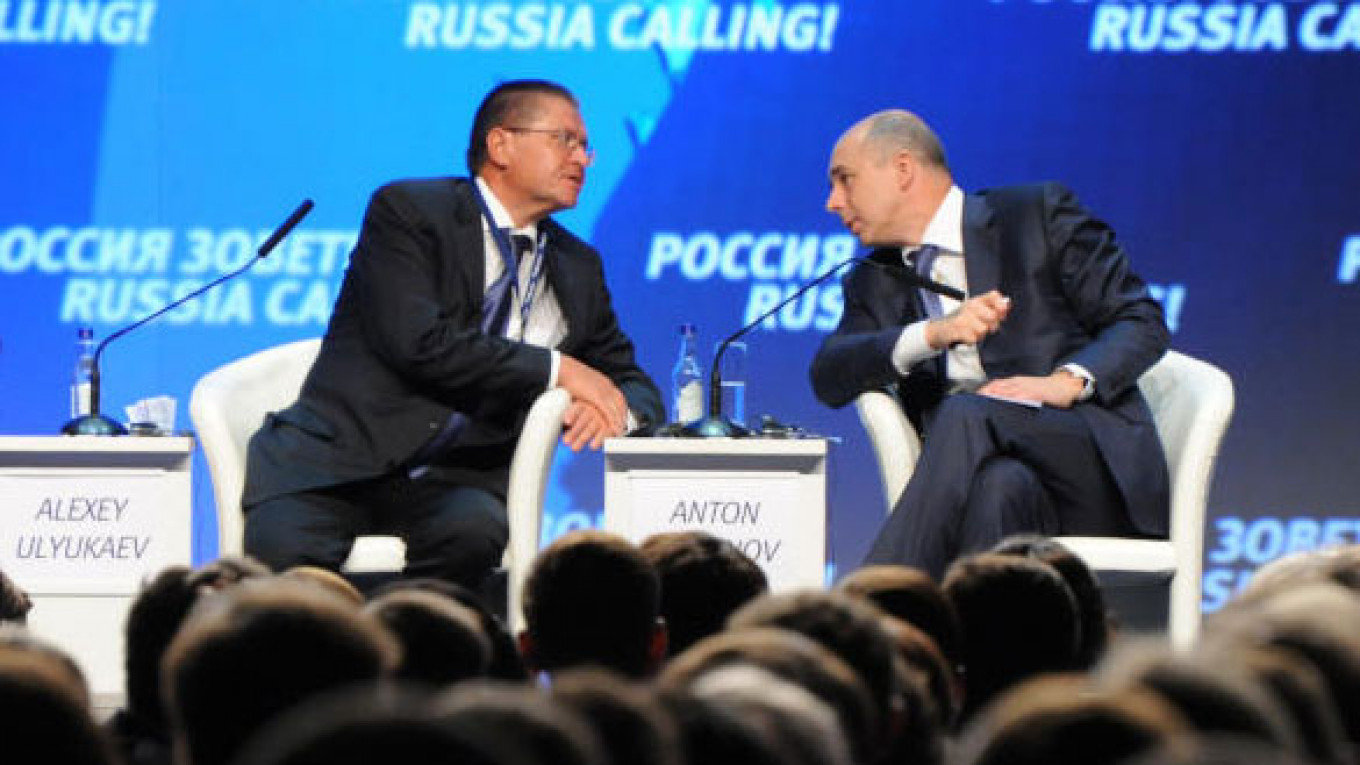First Deputy Prime Minister Igor Shuvalov on Tuesday griped about proposed raises in government salaries, describing them as insufficient, adding to the unabated broadsides aimed at the federal budget plan for next year.
His comments highlighted the tensions bred by a lower-than-expected increase in government spending.
"The salaries that have been announced are ridiculously low," Shuvalov said in a radio interview. "Members of the government must get different payment."
He was referring to a decree by President Vladimir Putin to increase remuneration to Cabinet ministers starting next year, a move that bumps Shuvalov's paycheck up to 62,000 rubles ($1,900) a month.
As indicated in the budget plan, federal spending is growing by 4 percent to 13.96 trillion rubles ($440 billion) next year, compared to this year.
That increase, however, is lower than what the Economic Development Ministry predicted a year ago. The disappointing change is a result of the country's economic slowdown.
Adjusting to the new reality, the government has made do by downsizing some of its previous spending proposals in the latest budget plan that it submitted to the State Duma at the end of last month. Budgets in Russia are passed for three years ahead, rather than year by year.
Defense Minister Sergei Shoigu said last month that one of the budget plan's biggest spending items, purchases of new weapons, remained intact. But officials made some minor trimmings in other defense-related areas.
Vladimir Komoyedov, chairman of the State Duma's Defense Committee, on Tuesday complained that the Defense Ministry would have to scale down military exercises by at least 20 percent next year, thanks to spending curbs. As part of the austerity measures, all military personnel, unlike government officials, will suffer a freeze on their pay next year.
That notwithstanding, critics still blame the government for going overboard with the spending that could stay on hold amid a flagging economy.
Liberal politician Boris Nemtsov said that spending on defense, police and state bureaucracy increased to account for 40 percent of the total.
At the same time, health care and education took a hit, receiving 33 percent of total spending, down almost 5 percent, compared with this year.
Economist Sergei Alexashenko concurred on the budget plan's preoccupation with defense and law enforcement spending.
"It continues to be lopsided by the insane spending on the armed forces and security agencies," he said of the budget in his blog.
Stepping up the pressure on fiscal stability, the government is also dedicating more money to fulfilling Putin's campaign promises, proposing an allocation of 531.4 billion rubles next year, up from 381 billion rubles planned previously.
One other move that drew much heat from the economic community, including former Finance Minister Alexei Kudrin, was the decision to divert a portion of compulsory retirement savings to fund the payment of current pensions, instead of investing the money on the market.
Finance Minister Anton Siluanov attempted to strike an optimistic note in a speech at the Federation Council on Tuesday, assuring that the declining rate of economic growth would rebound to 3 percent next year, up from 1.8 percent expected this year.
He said he was hopeful that this would happen on the back of stronger demand expected for Russian commodities, such as steel and ores, next year in Europe, which is Russia's key trading partner. The government's freeze on key tariffs next year will also help, he said.
Contact the author at [email protected]
A Message from The Moscow Times:
Dear readers,
We are facing unprecedented challenges. Russia's Prosecutor General's Office has designated The Moscow Times as an "undesirable" organization, criminalizing our work and putting our staff at risk of prosecution. This follows our earlier unjust labeling as a "foreign agent."
These actions are direct attempts to silence independent journalism in Russia. The authorities claim our work "discredits the decisions of the Russian leadership." We see things differently: we strive to provide accurate, unbiased reporting on Russia.
We, the journalists of The Moscow Times, refuse to be silenced. But to continue our work, we need your help.
Your support, no matter how small, makes a world of difference. If you can, please support us monthly starting from just $2. It's quick to set up, and every contribution makes a significant impact.
By supporting The Moscow Times, you're defending open, independent journalism in the face of repression. Thank you for standing with us.
Remind me later.






